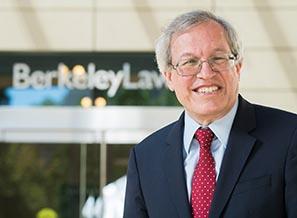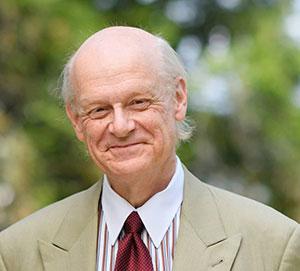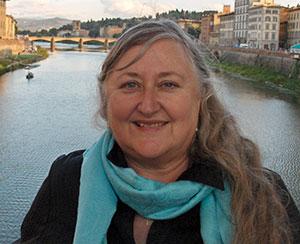This webinar is the second in a series of public forums hosted by the Law School Name Committee.
Background
In the summer of 2020, we learned about a petition urging CSU Cleveland-Marshall and UIC John Marshall Law School to remove any reference to Chief Justice John Marshall in our law schools’ names because of Chief Justice Marshall’s association with slavery. Dean Fisher immediately formed a Law School Name Committee consisting of faculty, staff, students, and alumni to seek wide input, develop findings and options, and make a recommendation to our faculty for consideration about whether “Marshall,” named after Chief Justice John Marshall, should be removed from our Law School’s name, and if so, a recommendation about the new name of our Law School. Ultimately, a name change will be a university decision.
Dean Fisher has publicly noted that we must take the petition to change the name of our law school and the spirit in which it was written very seriously. Our law school rejects and condemns racism in all its forms - overt, covert, and systemic, and we accept our responsibility to evaluate our role in perpetuating racism, whether it is conscious or unconscious.
The Committee has decided to host some forums this semester to provide context to the issue of whether “Marshall” should be removed from our law school name.
These forums are not intended to directly deal with the question of whether we should change our name or to advocate for any particular viewpoint. Rather, the purpose is to better understand how historians view institutional name changes and how other institutions have approached similar issues. The forums will intentionally present differing views and opinions on this subject.
Removing “Marshall” from our law school’s name would be a very consequential decision by the College of Law and Cleveland State University that requires careful study and thoughtful consideration of different viewpoints from our entire law school and university community. The legacy of Chief Justice John Marshall is complex and we are drawing on scholarly expertise to explore and examine that legacy as a part of our process.
We are an historic institution and are very proud of our iconic history. The Cleveland-Marshall College of Law is the direct descendant of two law schools, the Cleveland Law School founded in 1897, and the John Marshall School of Law, founded in 1916. In 1946, the two law schools merged to become Cleveland-Marshall Law School. In 1969, the law school joined Cleveland State University and was renamed the Cleveland-Marshall College of Law at Cleveland State University. We consistently have been the law school for many women and men who have broken gender, race, ethnic, economic, and generational barriers to make change and advance progress in social justice, civil rights, and public service.
In considering a name change, we will incorporate wide input and will be guided by our proud history, our guiding values, our law school’s mission Learn Law. Live Justice, and the values and mission of Cleveland State University.
Forum Panelists
Two of our panelists, Dean Erwin Chemerinsky and Dr. Danielle Moretti-Langholtz, who have experienced the process of institutional renaming will discuss the process they went through at Berkley Law School and William & Mary, and Professor Allen Guelzo will provide some historical perspective on the complex legacies of noted historical figures.

Erwin Chemerinsky
Dean, UC Berkeley School of Law, Jesse H. Choper Distinguished Professor of Law
Erwin Chemerinsky is the Dean of Berkeley Law and the Jesse H. Choper Distinguished Professor of Law. Prior to assuming this position, from 2008-2017, he was the founding Dean and Distinguished Professor of Law at University of California, Irvine School of Law. He is the author of fourteen books, including leading casebooks and treatises about constitutional law, criminal procedure, and federal jurisdiction. His most recent books are The Religion Clauses: The Case for Separating Church and State , and Presumed Guilty: How the Supreme Court Empowered the Police and Subverted Civil Rights (to be published by Norton in 2021).He also is the author of more than 250 law review articles. He frequently argues appellate cases, including in the United States Supreme Court. In 2017, National Jurist magazine again named Dean Chemerinsky as the most influential person in legal education in the United States. In January 2021, he was named President-elect of the Association of American Law Schools.

Professor Allen Guelzo
Director, Initiative on Politics and Statesmanship, James Madison Program in American Ideals and Institutions, Princeton University
Dr. Allen C. Guelzo is the Senior Research Scholar in the Council of the Humanities and Director of the Initiative on Politics and Statesmanship in the James Madison Program at Princeton University. He is the author of Abraham Lincoln: Redeemer President (1999), Lincoln’s Emancipation Proclamation: The End of Slavery in America (2004), Lincoln and Douglas: The Debates That Defined America (2008) and Fateful Lightning: A New History of the Civil War and Reconstruction (2012). His book on the battle of Gettysburg, Gettysburg: The Last Invasion was a New York Times best seller in 2013. He has produced six lecture series for The Teaching Company, on topics ranging from Mr. Lincoln to The American Revolution to (most recently) America’s Founding Fathers. His most recent book is Reconstruction: A Concise History (Oxford University Press, 2018) and he is currently at work on a biography of Robert E. Lee.

Dr. Danielle Moretti-Langholtz
Thomasina E. Jordan Director of the American Indian Resource Center, William & Mary University
Danielle Moretti-Langholtz is the Thomasina E. Jordan Director of the American Indian Resource Center in the Department of Anthropology at William & Mary. A cultural anthropologist with a doctorate from the University of Oklahoma, she is the administrator of the interdisciplinary Native Studies minor, and teaches a variety of courses on indigenous history and culture. Additionally, she serves as the Curator of Native American Art at the Muscarelle Museum of Art on William & Mary’s campus.
View Past Forum
March 22, 2021 Facing and Confronting our History
